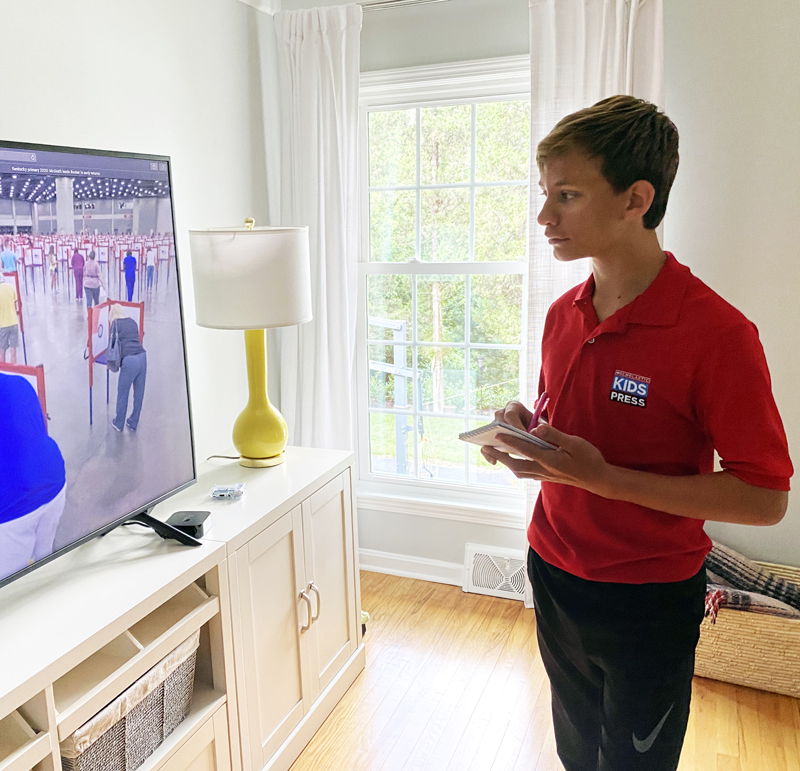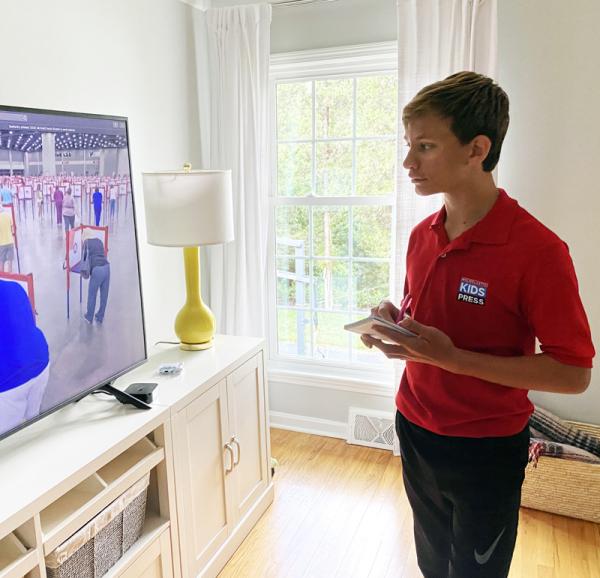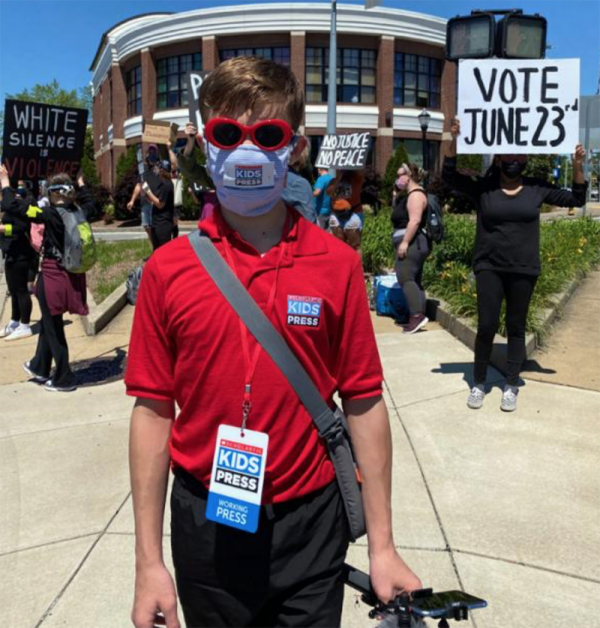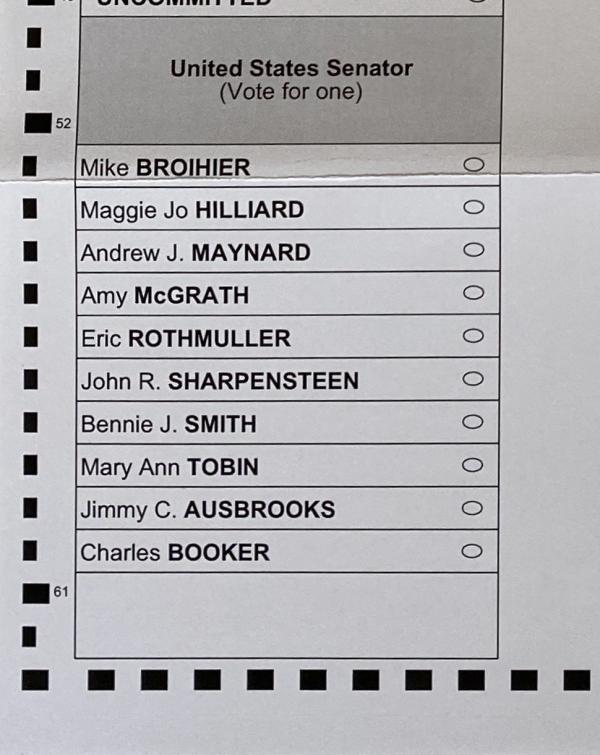KID REPORTERS’ NOTEBOOK
A Challenger in Kentucky Senate Race


Leo watches news reports about the Kentucky primary elections, which took place on June 23.
Kentucky’s primary election results are in. With former Vice President Joe Biden all but assured the Democratic Party’s nomination for president, all eyes were on the Senate primary election. Amy McGrath, a former Marine fighter pilot, capitalized on early support from the Democratic National Committee and out-of-state donors to win her party’s primary nomination for the United States Senate. In November, McGrath will face Republican incumbent Mitch McConnell, who is the Senate Majority Leader.
Ousting McConnell from the Senate seat he has held since 1985 will be an uphill battle. “He is quite literally the king of the Republican Party,” says Hannah Wilson, a McConnell Scholar at the University of Louisville. “Anybody who is a part of that kingdom has his protection and support, and that is a very powerful thing.”
“He is quite literally the king of the Republican Party,” says scholar Hannah Wilson about U.S. Senator Mitch McConnell of Kentucky.
SOCIAL JUSTICE PROTESTS
Enthusiasm for McGrath’s candidacy waned in the weeks leading up to the primaries, which had been postponed until June 23 because of the coronavirus pandemic. Issues of racial justice and police brutality came to the fore in late May, after the deaths of George Floyd and other Black Americans at the hands of police officers. In Louisville in March, Breonna Taylor, an emergency medical technician, was shot and killed by police officers who broke into her home.
Black Lives Matter activists and other Kentuckians took to the streets by the thousands, demanding justice for Taylor’s murder and an end to police brutality. McGrath was conspicuously absent from the protests and rallies. Democratic Senate candidate Charles Booker, meanwhile, became an influential leader.
Booker is a charismatic member of the Kentucky House of Representatives and the state’s youngest Black lawmaker. He has become popular among Kentucky’s progressive voters and carried endorsements from his legislative colleagues and local grassroots organizations into the primaries. Ultimately, the late enthusiasm for Booker was not enough to overcome McGrath. Because of the pandemic, many people had already participated in mail-in voting before the protests began.

In early June, Leo spoke with social justice organizers in Louisville.
ACCESS TO THE POLLS
For the first time in the state’s history, in response to health and safety concerns related to COVID-19, Kentuckians could vote by mail in the primary election without an “excuse,” such as military deployment, a disability, or temporary residence out of the state.
That process, as well as long lines at polling places in low-income communities, prompted debates about voter access, suppression, and equality. The same communities disproportionately victimized by police are also disenfranchised by unfair voting laws and practices.
Black Lives Matter activists and other local leaders are now focused on eliminating voting practices that adversely affect Kentucky’s Black citizens. “I'd like our legislators to allow every registered voter to receive a ballot in the mail,” says Sadiqa Reynolds, president and chief executive officer of the Louisville Urban League.
Reynolds, whose organization helped hundreds of voters get to Jefferson County’s single polling place on Primary Day, also would like to see advertisements about early voting options, as well as extended polling hours for the general election on November 3.

Due to the coronavirus pandemic, many Kentucky voters used mail-in ballots for this year’s Democratic primary election.
FIGHTING FOR CHANGE
The call for extended voting hours is shared by award-winning teacher, musician, activist, and newly-elected Metro Council member Jecorey Arthur, who explained the logistical barriers to a single polling location.
“My neighborhood, Russell, which is in the West End of Louisville, struggled to vote at our one polling location,” Arthur said. “An estimated 47% of the households do not have vehicles. The free rides to the polls with a central pickup location still meant that we had to get transportation in place. When you’re poor, disabled, and elderly this makes voting across town impossible.” Such challenges highlight the disparities between the Black and white communities in policing, housing, education, and health care.
Many Kentuckians have expressed a desire to elect more Democrats to key decision-making posts. In November 2019, Republican Governor Matt Bevin lost to Democratic challenger Andy Beshear. Democrats represent 48% of Kentucky’s registered voters, compared to 43% for Republicans.
The McGrath/McConnell race will test voters’ ability to overcome the power and influence that decades in office builds for an incumbent, and the manipulation of the voting infrastructure aimed at suppressing marginalized groups.
